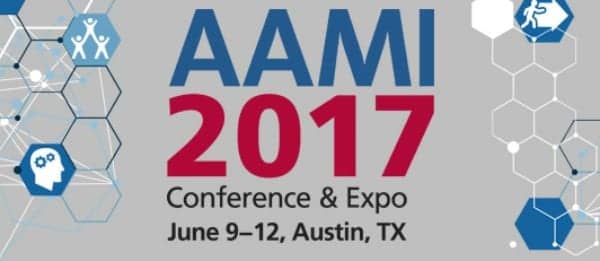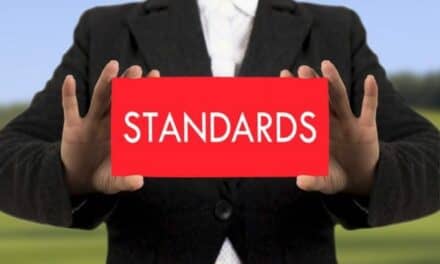During the AAMI 2017 Conference & Expo, which took place from June 9-12, in Austin, Texas, experts in the healthcare technology management (HTM) field explored a variety of hot topics. Chief among them: cybersecurity, legislative matters, and the fight over service manuals.
Like in previous years, the conference held a variety of lively—and thought-providing—sessions. Here’s a snippet of arguably the 10 most-buzzworthy quotes heard during the conference (in no particular order):
1. “Are we secure? The answer is ‘no.’ What’s your next question?” — Kevin Fu, CEO and chief scientist of Virta Labs, Inc. and director of the Archimedes Center for Medical Device Security and the Security and Privacy Research Group at the University of Michigan
2. “You’ve got OEMs hiding behind the word ‘safety.’ In the eyes of OEMs, in-house biomeds are not ‘trained professionals’ who can work on these devices.”— Dave Dickey, corporate director of McLaren Clinical Engineering Services with McLaren Health Care in Flint, Mich.
3. “With an alternative equipment management approach, you don’t have to put yourself in this little box. You can be thinking out of the box. You can be creative with frequency and still come up with a safe and reasonable approach.”— George Mills, MBA, FASHE, CEM, CHFM, CHSP, director for the department of engineering at The Joint Commission.
4. “Ten years ago, all the medical devices were biomed and clinical engineering, while the computers belonged to IT. We’ve been in a hybrid approach for the last several years, but we’re finding that they’re not necessarily covering everything.”— Erin Sparnon, engineering manager at ECRI Institute
5. [Regarding the FDA’s March 2016 call for comments on the “refurbishing, reconditioning, rebuilding, remarketing, remanufacturing, and servicing of medical devices”] “This particular call for comments was an opportunity for HTM, ISOs, and the OEMs to really put their foot to the floor and really provide that stake in the heart, if you want to call it that, for what they’re lobbying for. It didn’t quite happen that way.” — Michael Capuano, manager of biomedical technology at Hamilton Health Sciences
6. [Also concerning the third-party service debate in regards to greater FDA oversight] “In terms of patient safety, in my opinion, it’s going to be a wash … I’m not sure additional regulations will improve the situation a whole lot more … I just don’t see any scientific justification for additional, redundant regulation.” — Binseng Wang, ScD, CCE, fAIMBE, fACCE, director of quality and regulatory affairs at WRP32 Management, Inc. and Greenwood Marketing LLC
7. “When you start bringing up cybersecurity, you don’t just get HTM professionals. We get public health, IT, information security—they’re all interested because they feel the same pain that we do. It’s all about leveraging that pain in the correct direction so we can all grow.”— Benjamin Esslinger, CBET, clinical engineer/manager at Eskenazi Health in Indianapolis
8. “One of the biggest challenges we’ve had is getting a relationship with the departments of information technology (IT) and information security so they’re sympathetic with our cause and will support us … They own the network, and a lot of the things that we need to do to manage the security of our medical devices has to be done by them. They need to understand that there’s a reason for it..”— Scott Copland of Scripps Health in San Diego
9. “Hopefully, over time, the regulatory agencies that inspect HTM programs will see the value in [measuring the effectivness of a medical equipment management plan] and stop asking the silly questions related to PMs. If we want these sacred cows to go away, we need to go to CMS with data.” — Dave Dickey
10. “If there’s ever been a reason to go to an AEM program, [EC.02.04.03, EP 4] is the EP for it.” — George Mills



